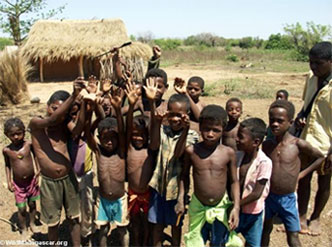China leading the way in reducing undernutrition
mongabay.com
May 2, 2006
A worldwide study released today by UNICEF reveals that some 5.6 million children die every year in part because they are not getting enough of the right nutrients. And 146 million children are at risk from dying early because they are underweight.
The international community has promised to halve the number of children who are underweight by 2015. But Progress for Children: A Report Card on Nutrition’, warns that unless the world takes action, that Millennium Development Goal will not be reached.
Undernutrition is the result of insufficient food intake, repeated infectious diseases and lack of care. It stunts children’s growth and development and, in girls, their later ability to bear healthy children.
“Hunger and undernutrition lead and contribute to some of the world’s most intractable problems,” says UNICEF Executive Director Ann M. Veneman. “It contributes significantly to a cycle of poverty. It hurts children in their ability to learn. It hurts children in their ability to develop and it hurts children in their ability to resist serious diseases.”
A world free from hunger’
The report on nutrition is the fourth in a UNICEF series that monitors how well nations are keeping their promises to improve children’s lives. It shows that half of the world’s underweight children live in South Asia, while in East Asia, China is leading the way in reducing undernutrition. Slow progress is being made in West and Central Africa, while in the Middle East, populous countries such as Iraq and Sudan are slipping backwards.

Children in Madagascar, photo by Rhett Butler. |
|
But if governments make nutrition a priority, it will be possible to reduce the number of undernourished children, the report states. Great progress has been made through a number of proven strategies:
– Vitamin A supplements have saved hundred of thousands of children’s lives
– Some 82 million newborns are protected from iodine deficiency every year, thanks to campaigns to iodize salt
– Exclusive breastfeeding for the first six months of infancy is one of the simplest and most effective ways to save a child’s life.
“I am certain that we can make swift advances in a very short time,” says Ms. Veneman, who marks her first year as UNICEF Executive Director this week and also has been appointed as Chair of the United Nations Standing Committee on Nutrition. “The goal could not be greater — a world in which children live free from poverty, free from hunger.”
This is a modified news release from UNICEF














